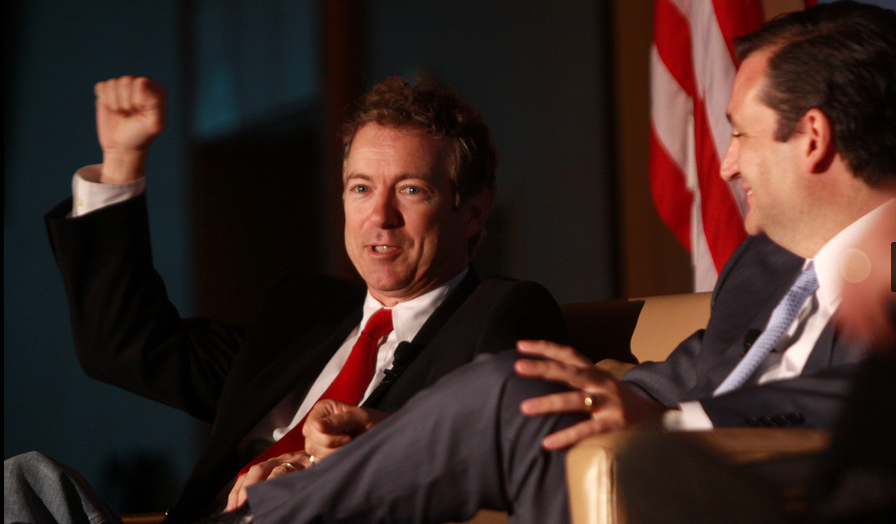Rand Paul at the 2013 Young Americans for Liberty National Convention. Photo: Gage Skidmore
Videos by Rare
Weigel writes of a speech Paul recently gave to the socially conservative American Principles Project, “(Paul) started challenging the crowd. ‘As Christians, we believe in forgiveness,” said Paul. ‘I think the criminal justice system should have some element of forgiveness.’ There are, sure, human terrors who need to be locked up. ‘But there are also people who make youthful mistakes who I believe deserve a second chance.”
Paul has been outspoken on eliminating mandatory minimum sentencing and the need for drug law reforms.
Weigel continues:
“These are ideas not many Republicans have talked about before,” Paul said. “I think if we talk about these ideas, we take them to the minority community, often the African-American and sometimes the Hispanic community—3 out of 4 people in prison are black and brown! But if you look at surveys on who uses drugs, whites and blacks and Hispanic use at about the same rate. You don’t have as good an attorney if you don’t have money. Some of the prosecution has tended to go where it’s easier to prosecute people.”
The crowd stayed with him.
“I think these are things we should look at. I’m not talking about legalization. I’m talking about making the criminal justice system fair and giving people a second chance if they served their time,” Paul said.
That line earned a long burst of applause. Paul was in no danger of losing this crowd.
That social conservatives are beginning to see the damage the war on drugs has done to individuals and families, particularly in minority communities, is a significant shift. In his speech, Paul emphasized that libertarianism is not “libertine,” not incompatible with Christianity, and that faith and liberty compliment each other more than some realize.
Highlighting anti-family policies related to the drug war is an example of a traditionally libertarian issue also becoming a focus for religious voters. In 2012, televangelist Pat Robertson also called for drug sentencing reform and even legalization of marijuana.
But Weigel also addresses the difference in attitudes among younger, tea party Republicans and their senate elders. When the Senate Judiciary Committee recently voted on drug law reforms, Weigel notes:
In the Judiciary Committee, the average age of the Republicans who voted for reform—Sens. Ted Cruz, Jeff Flake, and Mike Lee—was 45. The average age of the Republicans who voted no—Sens. John Cornyn, Lindsey Graham, Chuck Grassley, Orrin Hatch, and Jeff Sessions—was 69.
Senator Jeff Sessions, 67, said of his fellow senators who voted “no:” “There’s a libertarian concern that the government is incarcerating too many Americans. They don’t think too much of that.”
Differing generational attitudes in the Republican Party about drugs and drug laws are also reflected among the general public, where polls have consistently shown that younger people are far more open to reform and legalization and older Americans are less likely to support such changes to existing law.




